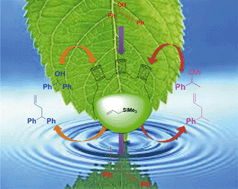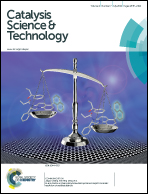Direct allylation of alcohols using allyltrimethylsilane: a move towards an economical and ecological protocol for C–C bond formation†
Abstract
The allylation of benzylic, allylic and propargylic alcohols by means of allyltrimethylsilane represents one of the most powerful, elegant and practical methods for the formation of carbon–carbon bonds in organic synthesis. This method has received considerable attention owing to the ability of allylated compounds to undergo further synthetic manipulations. The aim of this review is to summarise the recent trends and developments reported in the literature and to assist in the creation of novel methodologies.


 Please wait while we load your content...
Please wait while we load your content...